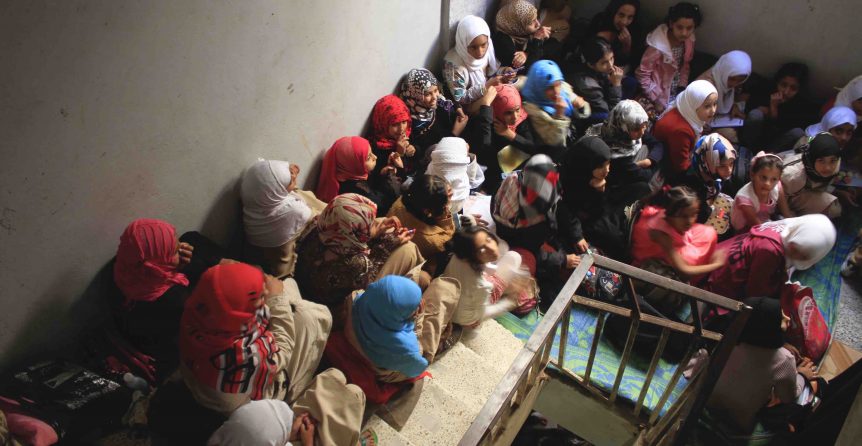Excellencies,
During the 42nd regular session of the UN Human Rights Council, we write to you as a coalition of Yemeni, regional and international NGOs to call on your delegation to support a resolution extending and enhancing the mandate of the Group of Eminent Experts on Yemen (GEE).
The conduct of the warring parties in Yemen continues to have a disastrous impact on the civilian population. Thousands have been killed and wounded as a direct result of fighting, including nearly 2,000 children, as verified by the UN human rights office. The UN has assessed that the true toll is far greater, estimating that more than 233,000 Yemenis will have been killed by year-end, either from fighting or by the ongoing humanitarian crisis, which the UN has declared the worst in the world. In their second report published in September 2019, the GEE attributed “direct responsibility” to the warring parties for the sharp deterioration of the “disastrous humanitarian situation” — pointing to attacks on critical civilian infrastructure, blockades and siege-like warfare and humanitarian obstruction.
The GEE’s second report details a host of serious violations and abuses, including possible war crimes, committed by parties to the conflict over the past five years. The report examined indiscriminate and disproportionate attacks, the use of antipersonnel landmines, arbitrary killings and detention, torture, enforced disappearances, child recruitment, sexual and gender-based violence, and impeding of access to humanitarian aid, amongst other abuses.
The GEE also released a 274-page conference paper providing further details on their findings, including case studies on the impact of fighting in Aden, Taiz, Hodeidah and al-Mahra governorates, a close examination of the impact of the war on women, children, minorities, persons with disabilities and the role of the warring parties in exacerbating the humanitarian crisis and destroying Yemen’s cultural property. The GEE concluded that individuals in the Saudi and Emirati-led coalition, the Yemeni government and the Huthis may be responsible for war crimes.
Serious violations and abuses continue. In early August, clashes between pro-government and separatist forces broke out in Aden and in other areas of southern Yemen, causing numerous civilian casualties. On August 31, the Saudi and Emirati-led coalition-led coalition attacked a Huthi detention site, killing more than 100 people, including at least four children. It was neither the first time the coalition attacked a Huthi detention center, nor that the Huthis abusively detained civilians.
There is a “pervasive lack of accountability,” according to the GEE, with the Huthis, the Saudi and Emirati-led coalition and the Yemeni government unwilling or unable to carry out credible accountability processes. The GEE therefore recommended the Council renew and reinforce their mandate with a view to beginning to address the impunity gap in the country. As the GEE’s chairperson, Kamel Jendoubi, said, “This endemic impunity… cannot be tolerated anymore. Impartial and independent inquiries must be empowered to hold accountable those who disrespect the rights of the Yemeni people.”
We believe taking up the GEE’s recommendations would be in line with the Council’s responsibility to address situations of human rights violations, including gross and systematic violations, to advance accountability, and to prevent further human rights violations and abuses.
By supporting the resolution, the Council would:
- Provide the GEE and its secretariat with the time and tools they need to continue their work documenting violations and identifying potential perpetrators of international crimes;
- Ensure continued scrutiny of the situation—the GEE remains the only international mechanism specifically mandated to monitor and publicly report on the human rights situation in Yemen;
- Ensure that the GEE’s important findings are shared with other relevant UN bodies, including the General Assembly;
- Ensure consistency of action and follow-up on previous resolutions, including Human Rights Council resolutions 36/31 (2017) and 39/16 (2018), thereby contributing to fulfilling the Council’s implementation mandate;
- Make clear that obstructionism is not rewarded, as Yemen, Saudi Arabia, the UAE and other coalition members continue to deny the GEE’s findings, to refuse to cooperate with the Group, and refuse to act on key recommendations formulated by the GEE;
- Avoid a monitoring gap as the conflict, and its impact on civilians, continues;
- Pave the way towards sustainable peace, which as the GEE make clear, requires credible accountability and redress processes.
In addition, we urge all delegations to support a recommendation by the GEE itself to add language clarifying its mandate to collect and preserve evidence of alleged gross violations and abuses of human rights, serious violations of international humanitarian law, and related crimes. Given the scale of ongoing violations in Yemen, this language would enhance the GEE’s functioning, sending a clear message to parties to the conflict – and to victims – that accountability is at the center of the mandate, and providing a crucial and much-needed deterrent to further violations and abuses.
We thank you for your attention to these pressing issues and stand ready to provide your delegation with further information as required.
Sincerely,
- Amnesty International
- Cairo Institute for Human Rights Studies
- Human Rights Watch
- Mwatana Organization for Human Rights
Photo: Girls receive their education on the stairs of a residential building to escape the armed clashes, city of Taizz, taken: February 3, 2016 (Mwatana Organization for Human Rights)
Share this Post

